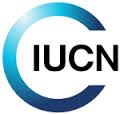Location
IUCN is a membership Union uniquely composed of both government and civil society organisations. It provides public, private and non-governmental organisations with the knowledge and tools that enable human progress, economic development and nature conservation to take place together.
Created in 1948, IUCN is now the world’s largest and most diverse environmental network, harnessing the knowledge, resources and reach of more than 1,300 Member organisations and some 16,000 experts. It is a leading provider of conservation data, assessments and analysis. Its broad membership enables IUCN to fill the role of incubator and trusted repository of best practices, tools and international standards.
IUCN provides a neutral space in which diverse stakeholders including governments, NGOs, scientists, businesses, local communities, indigenous peoples organisations and others can work together to forge and implement solutions to environmental challenges and achieve sustainable development.
Working with many partners and supporters, IUCN implements a large and diverse portfolio of conservation projects worldwide. Combining the latest science with the traditional knowledge of local communities, these projects work to reverse habitat loss, restore ecosystems and improve people’s well-being.
Resources
Displaying 106 - 110 of 142Green Finance for Sustainable Landscapes Joint Initiative of the CPF (GF4SL)
Objectives
Boosting investor interest to increase capital flows towards forest restoration and deforestation-free agriculture.
Other
Note: Disbursement data provided is cumulative and covers disbursement made by the project Agency.
Target Groups
1. The benefits of this projects can be framed as follows: · First of all, through this project, a number of finance institutions are expected to make commitments to shift the way they finance clients in the forestry / agricultural sectors by not only focusing on ‘avoiding harm’ but by building in conditions that lead to positive social and environmental impacts by committing to finance deforestation-free and nature-positive soft commodity production and other forms of sustainable land use. · Secondly, the project strives to converge on a way to frame, measure and monitor impact related to the above by standardizing Key Performance Indicators, and by monitoring frameworks that are applied by impact investors, banks and institutional investors committed to shift capital towards sustainable land use. 2. By de-risking and availing more investment opportunities for SFM, SLM and sustainable agriculture, the GF4SL also aims at influencing national regulatory frameworks to facilitate a paradigm shift to internalizing environmental risks into longer-term agricultural and/or forestry strategies. The project will also impact local smallholders, as additional investment prospects also mean more chances to graduate from subsistence farming to more commercially oriented practices. By priming necessary loans to require SLM and sustainable agriculture methodologies, a ‘top-down’ paradigm shift can be accompanied by a ‘bottom-up’ approach. This will provide for additional livelihood and socio-economic opportunities and in turn positively influence the rural labor-market and reduce urban migration. 3. Additionally, nature-dependent households located near forest areas will benefit as they are usually relying on the collection of non-timber forest products to meet daily needs. As forests are degraded and these ecosystem services are negatively affected, household livelihoods are further reduced. Thus, the preservation and regeneration of sustainable landscapes has significant potential to also protect the most vulnerable and especially indigenous peoples who are even more dependent on natural resources on an everyday basis. 4. In addition to the above global strategies to yield substantive investment opportunities for deforestation-free commodities production under components 1 and 2 of the GF4SL, the project also will engage directly with producer associations, initiatives and smallholders at the local level though the global and regional learning hubs in component 3. Community-based forestry and agribusiness producer groups and enterprises are engaged/trained/empowered to better leverage their rights to forest resources and other natural resources to secure private investment in socially and environmentally sustainable projects. The project will thus increase the awareness of smallholders on the impacts of forest conversion and the often ensuing land degradation on the health of the communities living around the forest, e.g. through smoke and haze from clearing forest lands. This is aimed at supporting lasting change of behavior and decisions through improved risk assessment opportunities at local level when engaging in agricultural activities at the expense of the environment.
Promotion of Sustainable Food Systems in India through Transforming Rice-Wheat Systems in Punjab, Haryana, Odi
Objectives
To promote sustainable, integrated landscapes and efficient food value and supply chains at scale in rice- and wheat-based food systems in India.
Other
Note: Disbursement data provided is cumulative and covers disbursement made by the project Agency.
Target Groups
1. Under the project model, the delivery of improved global environmental benefits (in terms of biodiversity, climate change mitigation and sustainable land management) will be inextricably accompanied by socioeconomic co-benefits including the following: - Improved farmer incomes: in line with the target of the National Agricultural Development Plan (RKVY) to increase farmers’ incomes by 4% between 2016 and 2023, the project will improve farmers’ access to favourable markets for their products by: strengthening value chain linkages (through the Green Value Chain Development Cell, Output 2.2.1); enhancing their capacities for compliance with environmental sustainability criteria, such as those set out in the SRP Standard and third-party certification schemes (Output 2.2.3); and supporting complementary income generation options under Output 3.1.3. - Improved resilience to the volatility in economic and food systems at regional and global levels: the kinds of diversified production systems that are required to optimize GEBs also typically contribute to the resilience of farm families’ food security and livelihoods; - Improved resilience to the effects of climate change: diversified production systems capable of yielding GEBs are also typically climate-resilient, given that they contain a wide range of alternative crops and varieties and tend to foster stable micro-climates capable of buffering variations in temperature and humidity. - Improved nutritional quality: sustainable diversification away from high-yielding varieties (HYV) of rice and wheat to, for example, traditional varieties of rice, as well as other crops including vegetables, pulses and millets, will increase the availability of nutritious food both among the farmers themselves and among downstream consumers. As a co-benefit of the project, this will help to address the problems of overnutrition (and its associated health impacts including obesity and diabetes), undernutrition and anemia, which affect a significant proportion of the country’s population.
Partnerships and Innovative Financing to Mainstream Biodiversity and Sustainable Land Management in the Wet an
Objectives
To conserve globally significant biodiversity by improving land management practices in tea and rubber plantation areas in the Wet Climatic Zone through innovative Private-Public-Community Partnerships
Other
Note: Disbursement data provided is cumulative and covers disbursement made by the project Agency.
Target Groups
The socio-economic benefits in the project will be observed at the individual (household level) as well as at the collective community level for economic groups like farmers, industrial plantation and forest concession groups as follows: At least 5,000 people in the target landscapes will directly benefit through improved livelihoods and incomes (15% increase), of which an estimated 50% would be women; As a result of initiatives on improved forest and riparian conservation activities and environmental practices in plantation lands, additional people living in and around the target sites will indirectly benefit from improved and sustainable land management, reduced erosion and water flows; Testing of new in-situ –ex-situ conservation efforts offer opportunity for enhancing conservation and ecological values of the forests; Implementation of strategies and mainstreaming of biodiversity conservation in plantation areas will result into sustainable practices on plantation, agriculture, water conservation, value chain products and services. This will collectively result in better conservation and livelihoods outcomes; Improved access to basic goods and technical services, technology and improved agricultural, forestry and tourism practices, as well as diversification of livelihoods in agriculture and non-farm sector including tourism and agri-based products will ensure more livelihood options and better prices and income; Enhanced certification through international third party would improve markets for plantation products in the competitive global markets thus helping enhance the health of the plantations and benefits to estate communities; The focus on addressing gender inequality wherein various initiatives such as technological interventions for drudgery reduction in livelihood and household-based activities, promotion of alternative livelihood options, participation of women in various local conservation committees are proposed. The project envisages more gender equality in context of sex ratio, decision making powers, ownership and control on resources and women leadership as well as participation; A reduction in the human-wildlife conflicts and increase in effective implementation of sustainable practices. The project expects a decrease in human-wildlife conflict in the three pilot corridor areas; Incremental funding through new financial solutions will improve conservation outcomes, protect critical biodiversity hotspots and provide for improved and diversified livelihoods and incomes and a sustainability of such investments beyond the life of the project; Advancement of multi-cropping systems (including agroforestry) in degraded plantation and small holder lands will enhance species diversity, improve water retention and reduce soil erosion and hence enhance the productivity of the land; and Stable or improved populations of key endangered species and improved forest environments will greatly enhance visitor experiences for increasing potential for ecotourism and community financial benefit.
Global Capacity Building Initiative for Transparency (CBIT) Platform Phase II B: Unified Support Platform and
Objectives
To provide streamlined support and capacity building at the country, regional, and global level to enable Non Annex I countries under the UNFCCC and developing countries under the Paris Agreement to better respond to reporting requirements and to catalyze increased ambition within country NDCs to contribute to the stated temperature goal of well below 2 degrees and if possible 1.5 degrees.
Other
Note: Disbursement data provided is cumulative and covers disbursement made by the project Agency.
Target Groups
This project will ultimately contribute to enhanced ambitions in reducing GHG emissions. Improved coordination will generate synergies and avoid duplication across support initiatives and efforts, freeing resources for additional efforts in the global aim to keep global warming below 2 degrees Celsius. Similarly, the enhanced availability of knowledge through a centralized coordination platform will help countries increase their transparency capacity and, as a result, their capacity to report progress on their NDCs and long-term policy planning, providing for increased ambition.In the area of climate change, the project will increase climate-related knowledge through improved GHG inventories and transparency frameworks and will disseminate good practice to developing countries, which will in turn allow them to undertake more robust mitigation activities. Furthermore, capacity improvements related to climate change adaptation and guidance on including robust adaptation goals in NDCs will generate adaptation-related benefits, but they may also generate benefits in other global environmental areas, such as biodiversity and land degradation through improved REDD+ capacity.
COLORADO RIVER DELTA
General
The Colorado River Delta is one of the most important sites for migratory waterbirds in Mexico, providing riparian areas, lagoons, brackish marshes, and tidal mudflats that support 350,000 wintering shorebirds (31 species) and 60,000 ducks and geese (26 species). The loss of connectivity between the Delta and the Upper Gulf of California due to sedimentation and low river flow has caused significant habitat loss. This project will protect 26,600 acres of estuarine wetlands in the lower portion of the Colorado River Delta by obtaining a Mexican federal land concession and restore 5,211 acres within this area by augmenting freshwater flows and improving the connectivity with the tides to maintain lagoons, marshes, and mudflats. The project will allocate more freshwater flow to these wetlands and dredge channels that connect lagoons to the primary tidal channel.....




